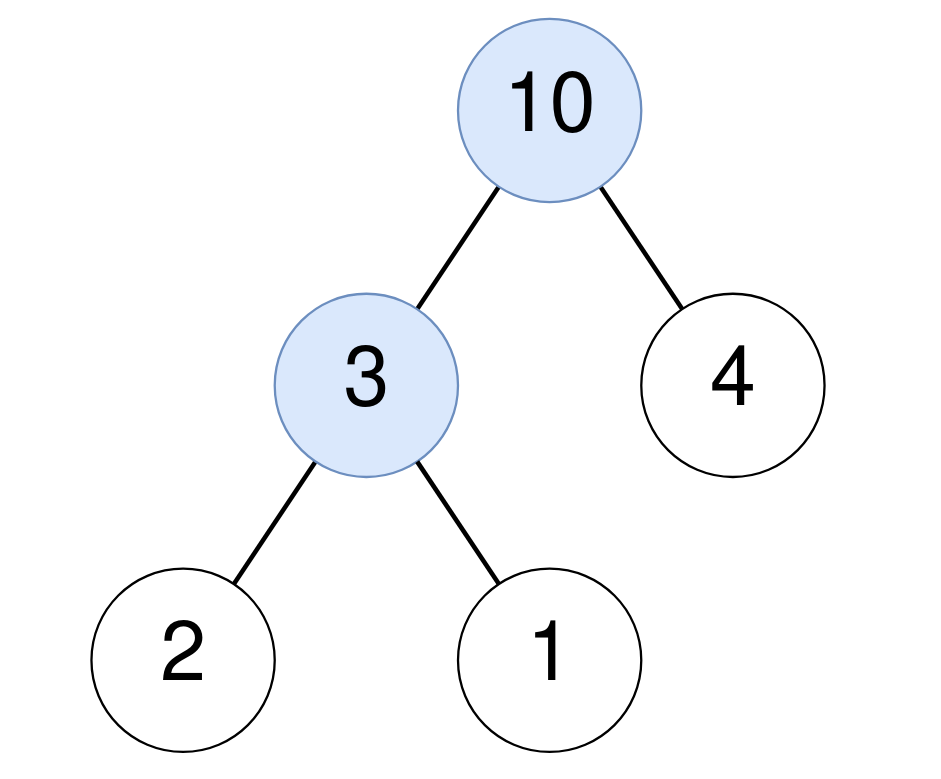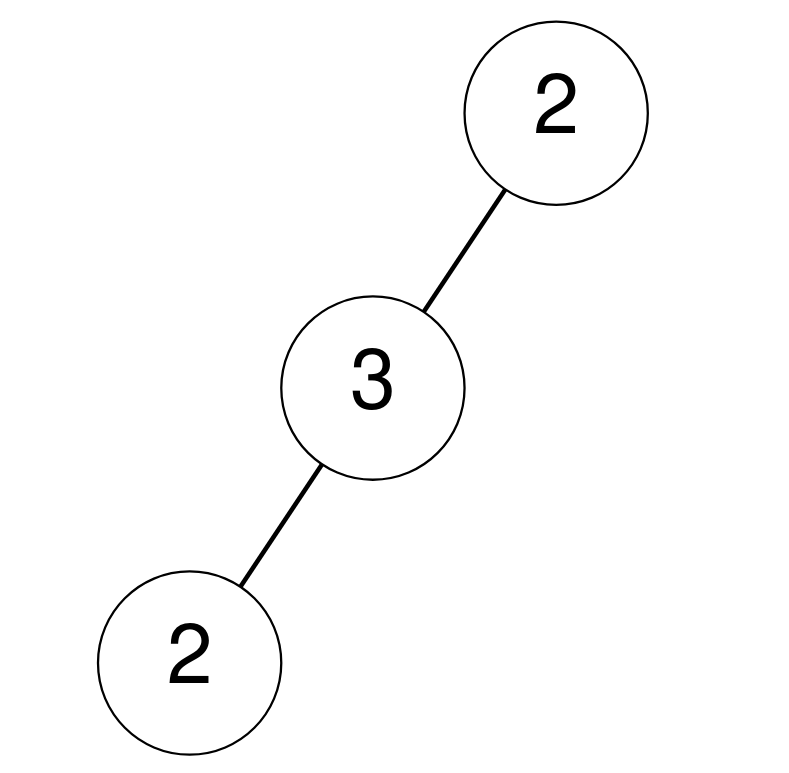Given the root of a binary tree, return the number of nodes where the value of the node is equal to the sum of the values of its descendants.
A descendant of a node x is any node that is on the path from node x to some leaf node. The sum is considered to be 0 if the node has no descendants.
Example 1:

Input: root = [10,3,4,2,1] Output: 2 Explanation: For the node with value 10: The sum of its descendants is 3+4+2+1 = 10. For the node with value 3: The sum of its descendants is 2+1 = 3.
Example 2:

Input: root = [2,3,null,2,null] Output: 0 Explanation: No node has a value that is equal to the sum of its descendants.
Example 3:

Input: root = [0] Output: 1 For the node with value 0: The sum of its descendants is 0 since it has no descendants.
Constraints:
- The number of nodes in the tree is in the range
[1, 105]. 0 <= Node.val <= 105